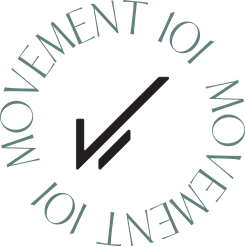|
Heel pain is a common painful condition that can affect humans of all ages. The problem has become pronounced in recent years with many people seeking help from a podiatrist. If you suffer from any painful condition affecting the area under your feet, chances are high that you are dealing with heel pain. You do not necessarily have to be an athlete to suffer from this condition. Find all the information you need to know about this condition below.
What is Heel Pain or Plantar FasciitisPlantar Fasciitis is derived from the words Plantar Fascia – a connective tissue located at the base of the foot. The connective tissues run along the sole to the heel bone and the ball of the foot. This tissue, like others, acts to protect and support the foot arch. Heel pain or plantar fasciitis develops when this connective tissue is stressed or strained. It is also caused when there is pulling or tearing of the connective tissue or ligament. Heel pain or plantar fasciitis is a painful condition affecting the area underneath the heel. The condition often makes it difficult for victims to walk or run. When the problem persists over a long time, it can cause a mobility problem. Prolonged plantar fasciitis is often associated with swelling and inflammation which increases the pain experienced by the victim. Over time, heel spurs may develop due to constant stress on the affected ligament. The development of heel spurs does not mean the problem is untreatable, however, it does pose a threat to the quality of the victim’s life.What Are The Causes Of Heel Pain Or Plantar Fasciitis?Understanding the major causes of Heel Pain can help you prevent it or save you from its recurrence. In most cases, plantar fasciitis is encouraged by an abnormal walking or running condition. When you walk or run abnormally and repeatedly, you place a strain on the ligament, and over time, inflammation sets in. Another major cause of plantar fasciitis is injury. When an injury affecting the heel is not properly looked into, it may lead to heel pain and other complications. In some cases, people with improperly curved foot arches, especially those with flat foot or high foot arches may suffer from this condition. Importantly, you should know that anyone can suffer from plantar fasciitis irrespective of their age. While Heel Pain poses a threat to movement and mobility, it can also reduce the quality of your life. Those with Achilles tendon or tight calf muscles may also be at risk. Others whose jobs require them to walk to and fro for most of the day may also be susceptible. In summary, some of the major causes of heel pain include; Unsupportive shoes Flat feet or high arch Excessive walking, standing, or running on hard surfaces Achilles tendon or tight calf Aging and weight gain.What Are The Symptoms Of Heel Pain Or Plantar Fasciitis?Heel pain is registered in different ways for different patients. Each patient has their pain threshold and this makes it harder to quantify the amount of pain one is under. Some patients have reported pain similar to being stabbed in the heel in the morning. Some have also explained the pain associated with standing for too long, running, or walking a long distance at a stretch. The pain, however, gets worse over time when nothing is done to abate it.Are There Home Treatment Options For Heel Pain Or Plantar Fasciitis?It is best for people who suffer from heel pain to see a podiatrist for help. However, ahead of their appointment, they can take charge by adopting some home remedies.Stay off the affected foot - One of the best things you can do to alleviate your pain is to stay off the affected foot. If both feet are affected, you may need to get a wheelchair or lay flat until you absolutely need to stand. Reducing the stress on the plantar fascia will reduce the inflammation and resulting pain. Ice your foot - Ice is a great home remedy, especially when dealing with painful sensations. You should ice the affected heel pending when you can see a professional. Use anti-inflammatory medication - The surge of pain you feel when you stand, walk, or run is due to the inflammation in your heel. Anti-inflammatory medication can help reduce the swelling. Wear the right shoes with arch support - If you do not have shoes with arch support, now is the time to invest in a pair. Arch support reduces the pressure on your heels and aids in an even distribution of your weight. Stretch the plantar fascia to reduce stress and tightness - Similar to any other connective tissue in the body, the plantar fascia can harbor stress and tension which can cause it to tighten. Massaging the affected area can help reduce and dissipate the tightness. While these home care tips are great, they are in no way substitutes for professional help. What Are The In-Office Treatment Options For Heel Pain Or Plantar Fasciitis?Getting professional help can improve the chances of a pain-free life. There are many treatment approaches and modalities that can be adopted. Some of them include;Taping or strapping the foot - Your podiatrist may determine that taping or strapping your foot using a Rocktape is the best approach to reducing the pain you experience. Night splint - Night splints are useful to prevent painful symptoms, especially when patients get out of bed in the morning. This medication can help improve your pain threshold. Physical Therapy - Podiatrists may also recommend physical therapy as a treatment modality to address this problem. With proper stretching of the affected area, the tightness in the plantar fascia is reduced and eliminated over time. Some podiatrists may recommend steroid injections or may prescribe strong anti-inflammatory medication to help combat the swelling in the affected area or recommend arch supports to patients who do not already have them. Heel pain or plantar fasciitis can be a really painful condition when not addressed early. Visit the nearest podiatrist for help or visit https://www.movement101.com.au/ Movement 53/95 Bonar Street Wolli Creek NSW 2205 0295679452 Find us on Social Media https://www.facebook.com/Movement101.Physio https://twitter.com/mvmt_101 https://www.linkedin.com/company/wolli-creek-physiotherapy-&-pilates/ https://www.youtube.com/channel/UCV3IfTrtE9sAwbHRdOTZJ8g https://www.instagram.com/movement101.physio/ Comments are closed.
|
AuthorWrite something about yourself. No need to be fancy, just an overview. Archives
April 2024
Categories |
|
|
|


 RSS Feed
RSS Feed









